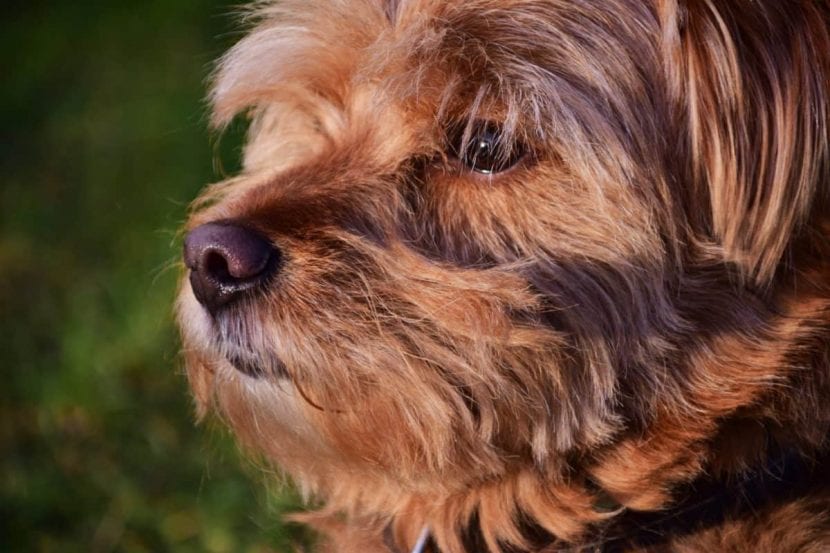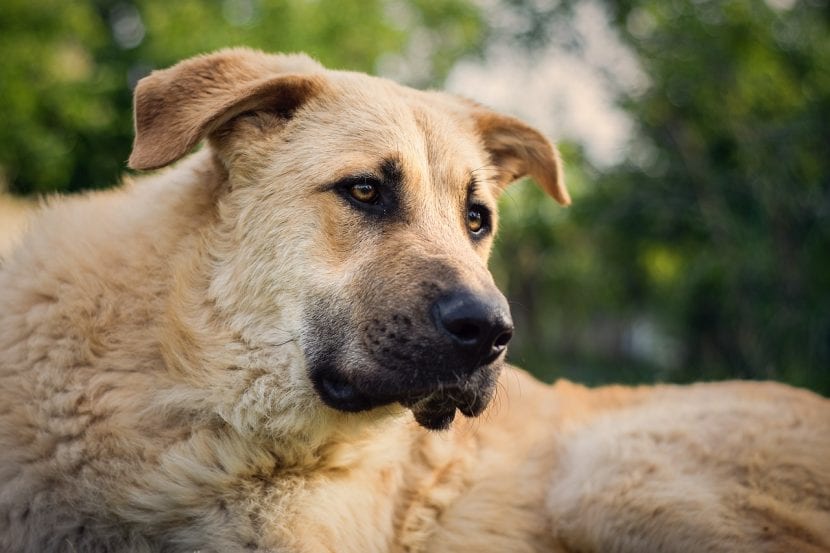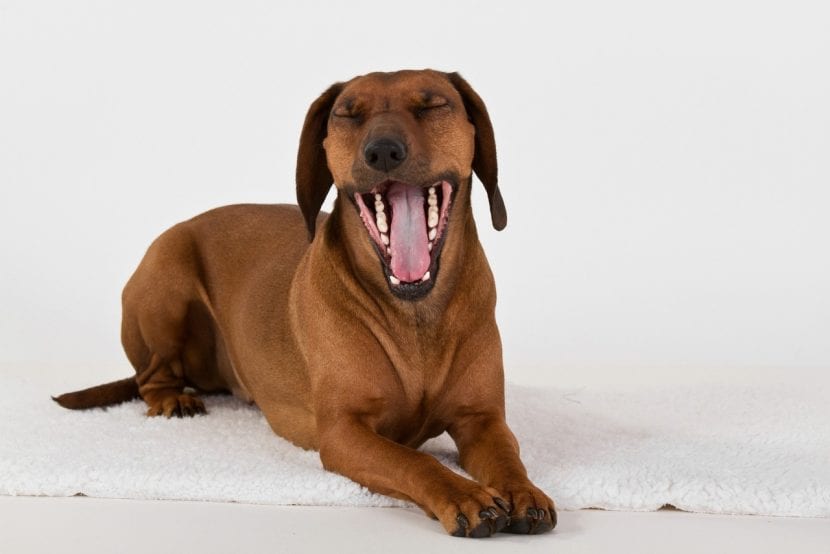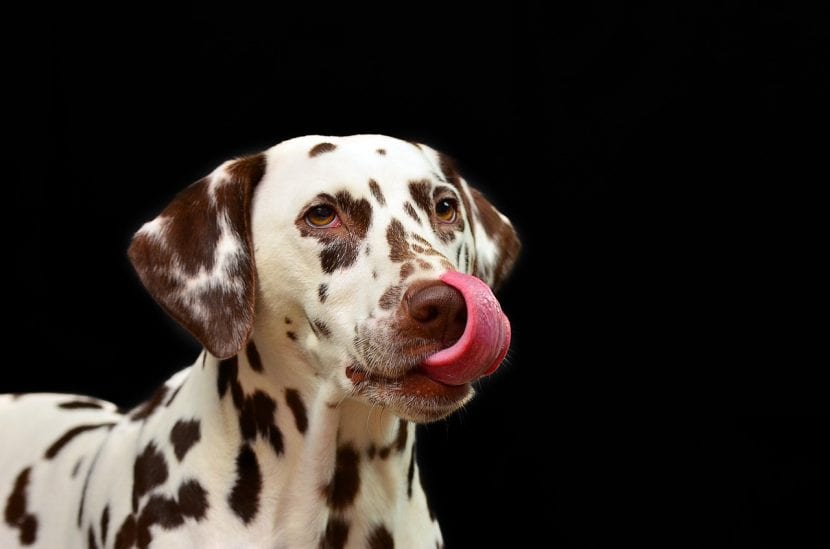
Halitosis is a problem that can affect the way we treat our friend; not much, but it will prevent us from enjoying your expressions of affection to the fullest. That is why when it appears, we attach great importance to it; not in vain, it is a symptom that may indicate that the dog's health is weakening.
Is there any way to prevent it? Of course, but we have to know that it is normal that, as you get older, the smell of your breath may change. So, we are also going to explain how should you treat your dog's halitosis.
What is halitosis?

Halitosis is bad breath. It is a foul smell that comes from the mouth. All animals, including people, can have this problem from time to time in our lives. It is really very annoying for others, that is why it often does not take us long to take the dog to the vet to tell us what to do.
What are the causes?
There are several reasons why the dog can have halitosis, his:
- Breathing problems such as nasal inflammation (rhinitis)
- Inflammation of the sinuses (sinusitis)
- Pharyngitis
- Tonsillitis
- Gastrointestinal problems such as enlargement of the esophageal tube (the tube that runs from the throat to the stomach)
- Metabolic disorders such as diabetes mellitus
- Viral, bacterial, or fungal (fungal) infection
- Trauma, such as electric cord injuries
- Corprophagia (eating stool)
- Cancer
What symptoms can a dog with halitosis have?
Apart from bad breath, most of the time there will be no symptoms other than that. However, if the problem is more serious, it may have loss of appetite, tooth decay, excessive salivation with or without traces of blood, and the dog may also give itself little bumps in its mouth with its paws.
How do you make the diagnostic?

If the dog has halitosis, the first thing we have to do is take him to the vet to be checked. Once there can take x-rays to look for, for example, foreign bodies in the mouth or tumors and an oral exam.
Which is the treatment?
Treatment will depend on the cause / s of halitosis. Sometimes extraction of teeth that are more than 50% worn may be necessary, and he will also prescribe medications They will relieve pain and control bacteria that infect your gums, which cause bad breath.
At home we will have to brush it daily in order to keep your teeth clean and healthy.
Can it be prevented?
Not 100%, but yes. There are several things we can do so that our friend does not have halitosis, at least at a young age:
Give him a quality diet
Cheap fodder (kibble) is usually made mainly of cereals. These ingredients, in addition to not being useful to dogs, can cause many problems for both allergies and bad breath. For this reason, it is advisable to give him a high quality dry food, which are made mainly of meat and are free of cereals and by-products.
Take care of your mouth
Every day we have to brush his teeth with a soft bristle brush and a specific toothpaste for dogs. How to get used to it? Very easy:
- The first thing we have to do is show him the brush. You have to let him see it and smell it.
- Then, we will put a little toothpaste on one finger and let it lick it. We will repeat several times.
- Afterwards, we take the brush again and put some toothpaste on it.
- Then, we hold its snout and brush its fangs with vertical movements.
- The next step is to brush the canines using circular movements, little by little. If we see that you feel uncomfortable, we will save this step for the next day.
- When we are done, we will give you a prize in the form of strokes for your good behavior.
Provide dental toys
In pet stores there are a number of dental toys that what they do is keep your teeth clean while having a great time playing. Ask the manager what they are and your friend will have a lot of fun.
Give him bones from time to time
There is a belief that a dog cannot eat bones, as they can splinter and cause him a lot of problems. This is true, but only in part. A cooked bone (fried or boiled) can be fatal to the animal, but one that is raw will not be able to splinter.
But besides giving him raw bones, it is very, very important that we give him one taking into account the size of the dog's mouth. You should never give a small bone to a large dog, nor a large bone to a small dog. Ideally, it should be a little longer than the length of your mouth, and I repeat, always, it must always be raw.

We hope it has been useful to you 🙂.